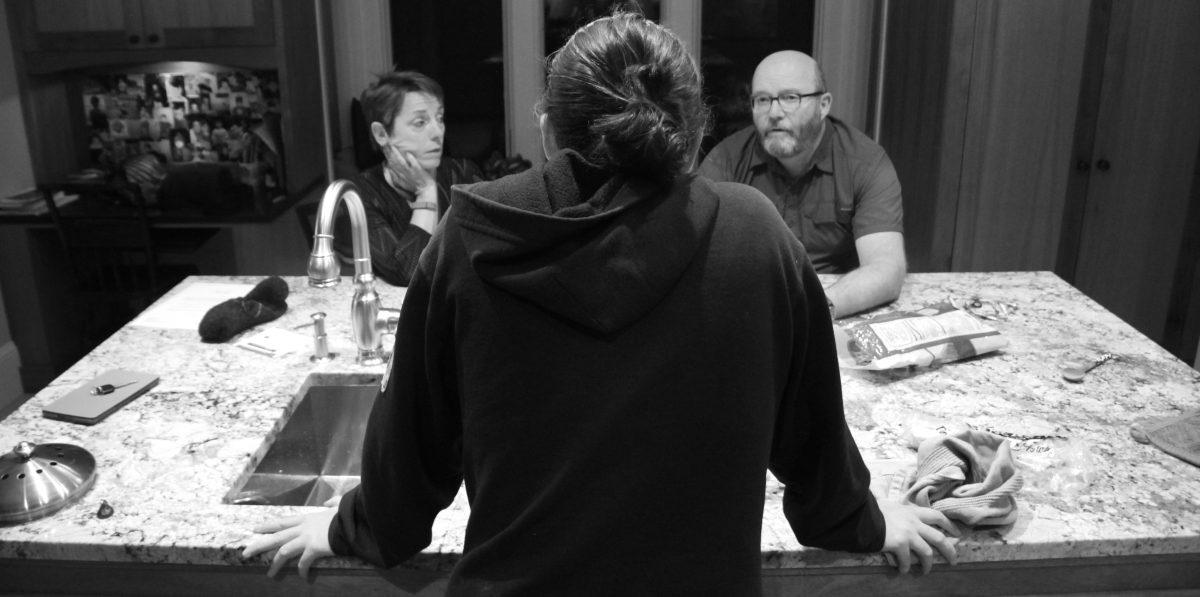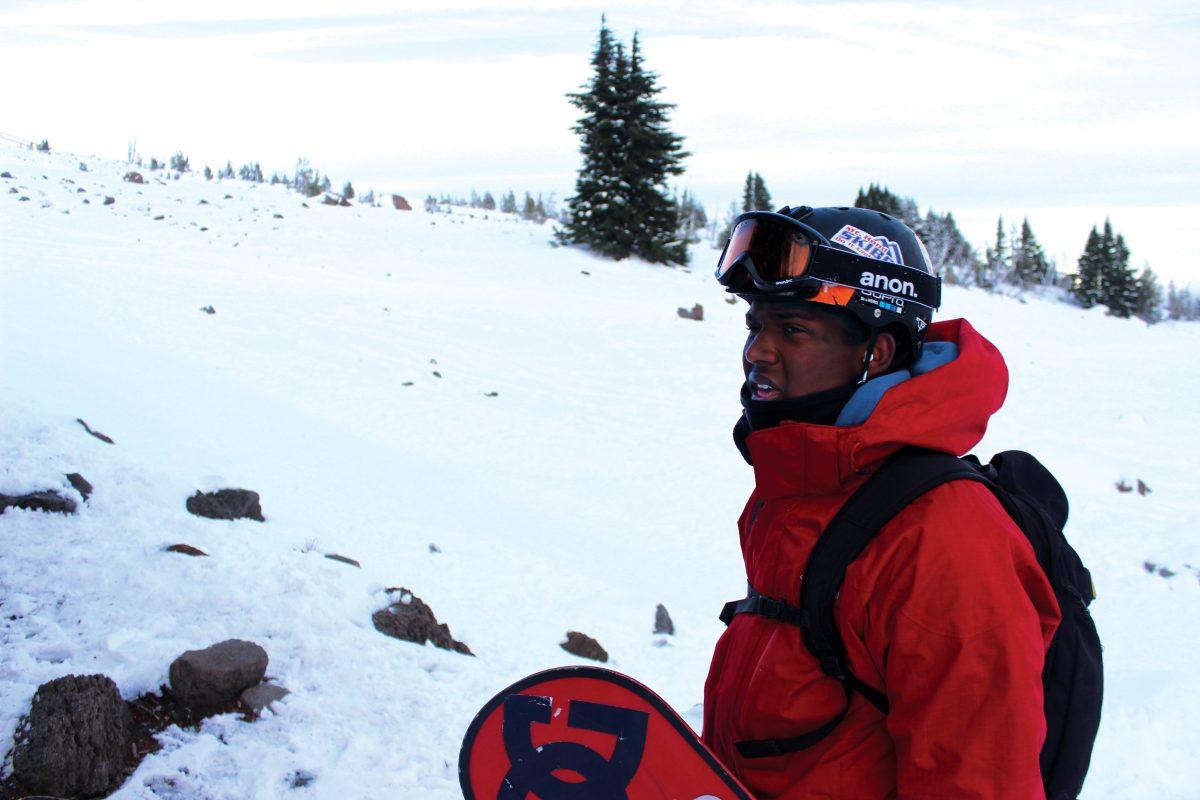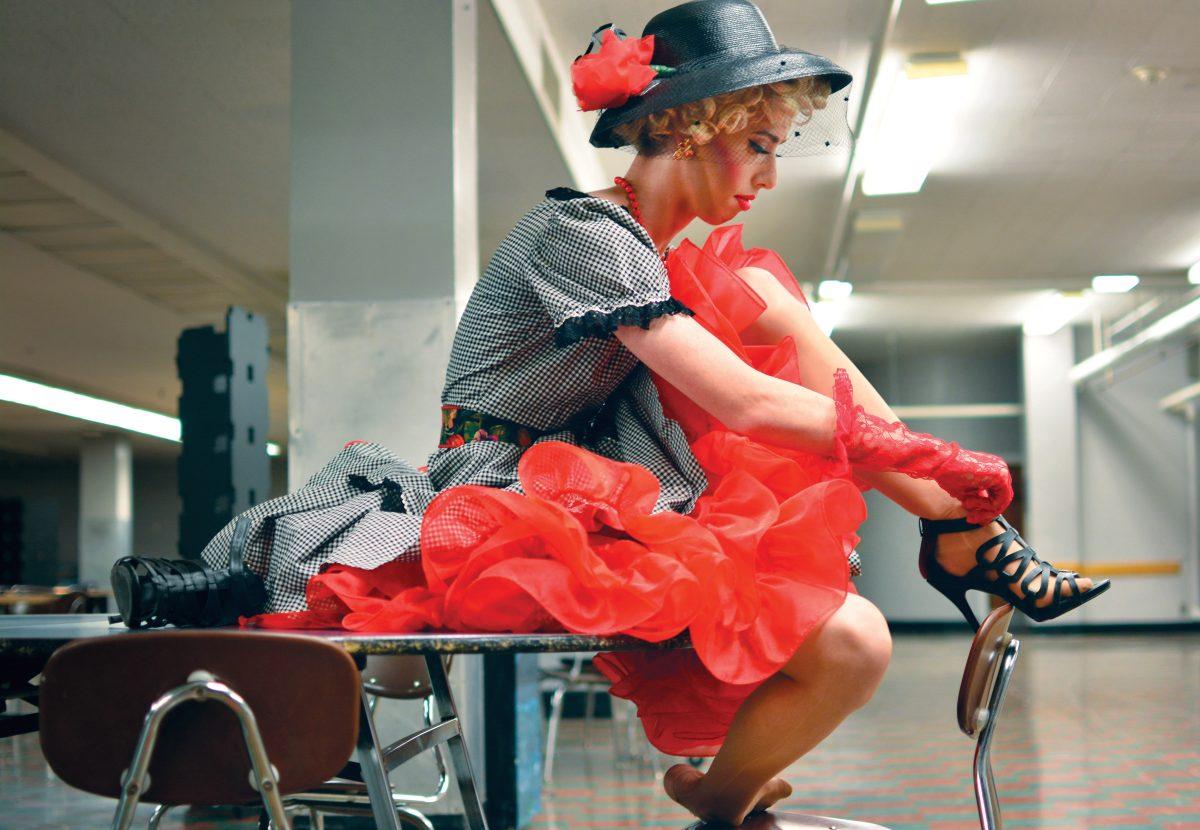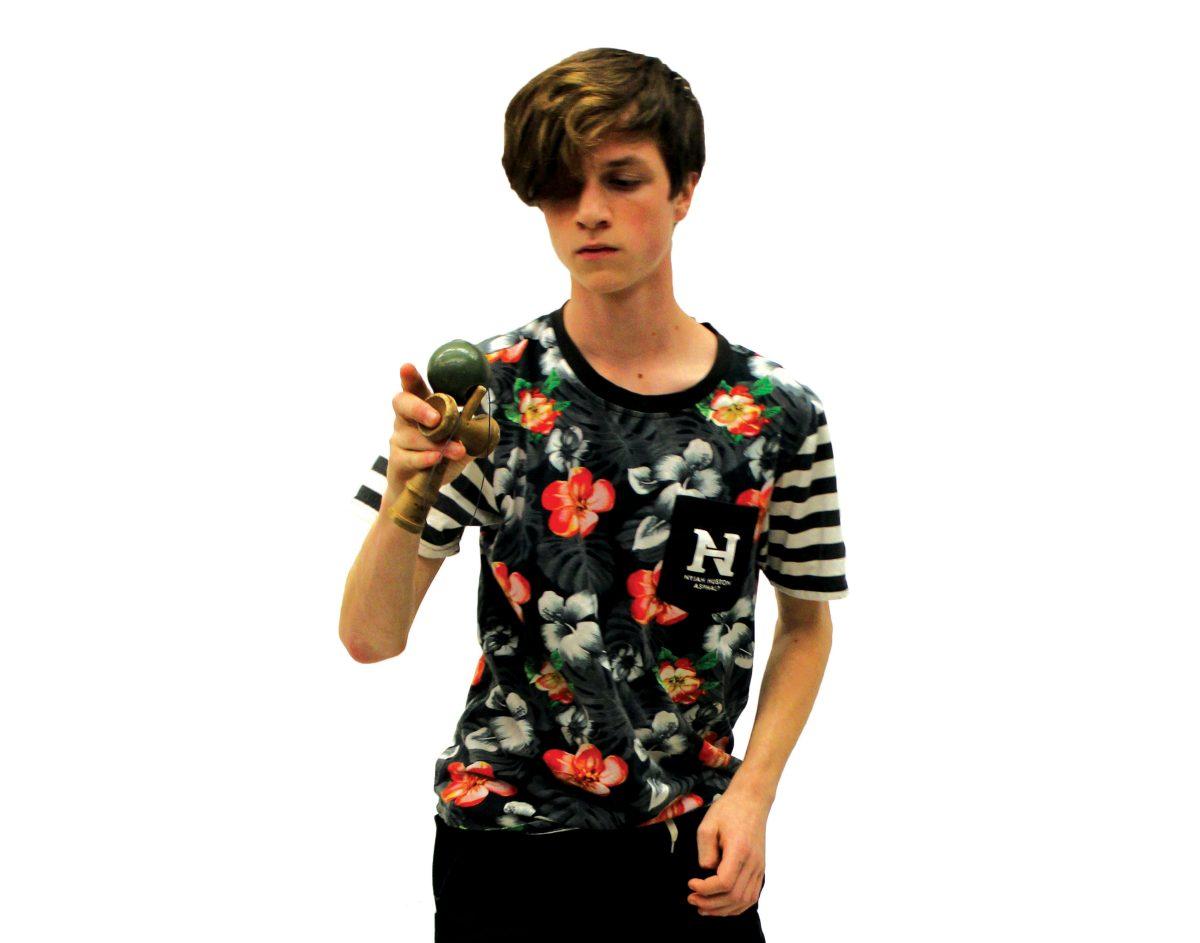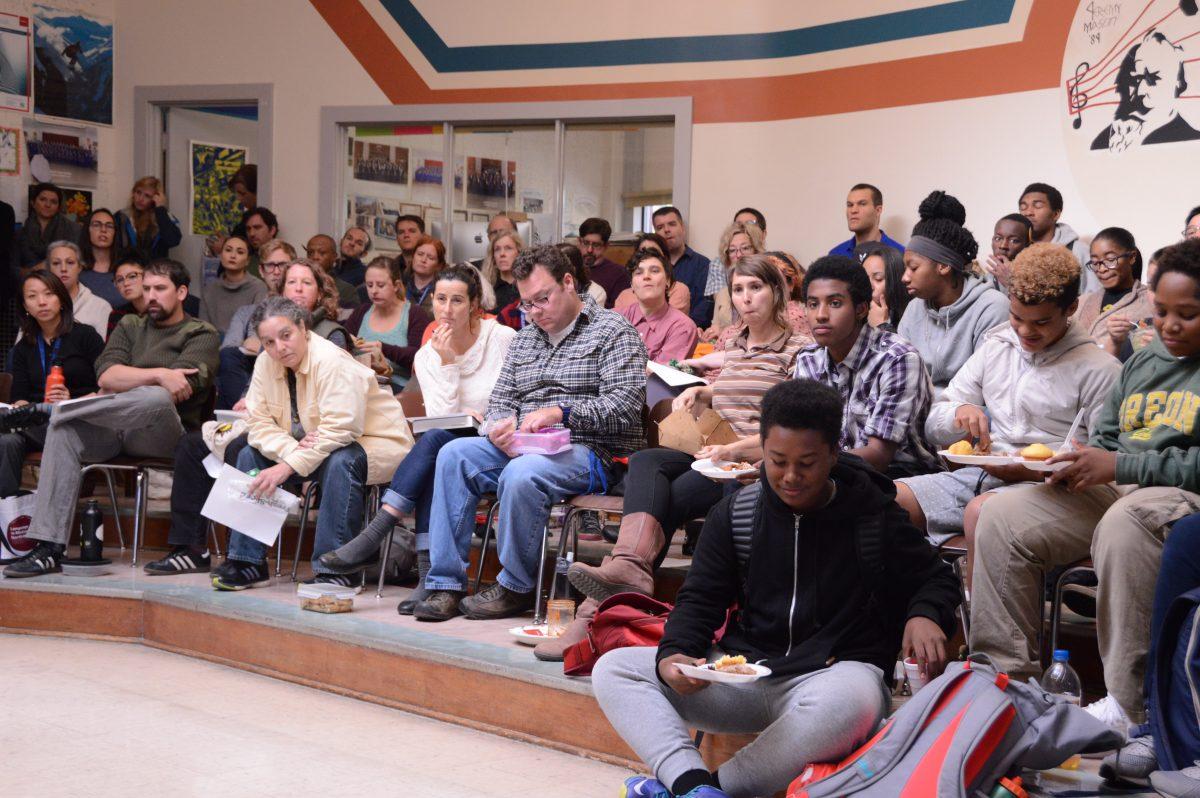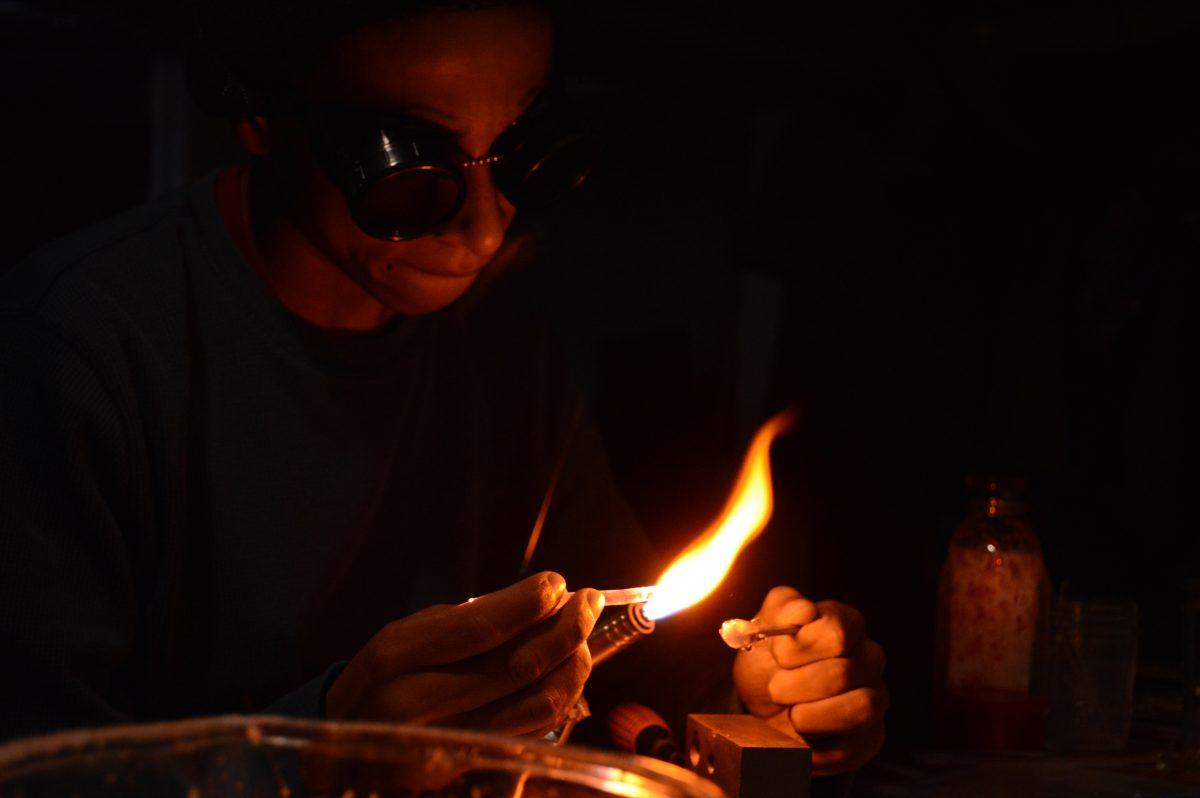It’s a hot day in early July and Grant High School junior Zivit “Zivi” Spector gazes at the huge structure standing before her: the Kotel, also known as the Western Wall. It’s the last standing wall of an ancient temple in Jerusalem and the most sacred place for Jews around the world.
Her visit to the Kotel marked Spector’s first trip to Israel. The landmark is known for being the final destination of many pilgrimages, where travelers will place a hand on the monument, pray and leave a wish.
Before she leaves, Spector pushes a rolled-up piece of paper containing her wish – to return to Israel someday – inside a crack in the wall. But the volatile climate in the Middle East makes that uncertain.
Spector and her mother, Lesley, traveled to the Israeli town of Ganei Tikva, about seven miles east of Tel Aviv, so they could reconnect with the other half of Spector’s family, including her father, whom she had not seen since second grade.
“My heart was just beating like, really fast, while we were about to leave,” she recalls. “I knew that when I left I would have all these connections and know where I came from. I didn’t really know what to expect, but I knew that there was a lot ahead of me.”
She also saw her half sisters, cousins, aunt, uncle and grandmother, none of whom she had ever met before. The visit was originally planned for July 2014. But when the longstanding conflict between the Israelis and Palestinians escalated, Spector’s father wanted to hold off.
He was uneasy about having rockets flying back and forth, and didn’t want rushing into safe shelters to be Spector’s first impression of Israel.
Before the trip, Spector never embraced Judaism. “Here, you kind of stick out when you’re Jewish,” she says of living in Portland. “In Israel, it isn’t a weird thing.”
Spector, 16, says that for a long time, she had been drifting farther away from her Jewish identity, but her trip to Israel changed that. “I kind of realized that’s who I am, that’s where I come from, and I should embrace it a bit more,” she says.
Caron Rothstein of the Jewish Federation of Greater Portland says, “there is a great deal of ignorance because of our small numbers.”
More than 47,500 Jews call Portland home, but they make up less than eight percent of Portland’s population. The absence of a strong Jewish population in Portland makes it difficult for some Jews, including Spector, to feel they belong to a community.
Now, Spector embraces her faith. She’s active in Grant’s Jewish Student Union. While she doesn’t adhere to the more structured customs of Judaism like keeping a kosher kitchen or saying a daily prayer, she strongly believes in the values of her religion.
“There are certain basic core Jewish values that we have,” says Rothstein. “Caring for the sick, helping to repair the world, caring for the vulnerable, caring for those who are less fortunate.”
Spector says she appreciates how the culture focuses on what’s important. “It’s really family oriented and community oriented,” she says. “It’s a really joyful religion. All of the holidays are music and food and just really happy.”
Spector was born on May 23, 1999, to Lesley Spector and Michael Dubb in Portland. When Lesley Spector was 34, she traveled to Israel and worked on a kibbutz, a communal farm in which workers receive meals and a place to sleep in exchange for work. It was there that she met Dubb. The two bonded over similar values. They had also both traveled to India and shared a connection to that culture.
Before leaving Israel, Lesley Spector learned she was pregnant. She loved being in the country but she couldn’t imagine raising a family there.
“There were a lot of things that were kind of unclear when I left, but it was scary to think that I was coming here, and you know, maybe going to be raising this child by myself,” Lesley Spector recalls. “But…at that point, I really felt like I needed to get out of Israel.”
Though she is Jewish, Lesley Spector was never in touch with that side of her identity. She wanted a different experience for her daughter. “I wasn’t raised with very many Jewish traditions at all, almost none,” she says. “And so I wanted to raise her with more than I’d had.”
Zivit Spector says she and her mother have celebrated Jewish holidays ever since she can remember. When she was about 5, her mother joined a synagogue. Zivit Spector attended Hebrew school, where she learned to read the Torah for her Bat Mitzvah.
Spector grew up playing soccer, doing crafts, and attending synagogue weekly – a normal childhood, by most standards. Meanwhile, her father was more than 6,000 miles away.
Dubb would often send gifts and call his daughter. But having never met her father, it was difficult for Spector to feel connected to him.
“Zivit’s dad always made a really big effort to be in touch with her, but I don’t think she really had a real concept of who he was,” says her mom.
That all changed when Dubb came to Portland to visit his daughter in 2007. “The first day was really weird,” Zivit Spector recalls. “I was like at school and he came to my school and I remember seeing him.”
She says she had no preconceived notions of what her father would be like before meeting him. “I was really nervous and excited. I think because I had no idea what he would be like, and what his personality was, I just had no idea,” says Spector.
Spector and her mom spent the week showing her dad around Portland. They went to Mt. Scott Pool in Southeast Portland and things were looking up.
After the visit, contact with her father became more frequent. “I think once she had actually had a personal connection with him, it made him more real to her,” says Lesley Spector.
“She was so cute and beautiful,” Dubb says when reached by email in Israel. “I remember a bubbly, funny little girl running around having fun.”
After Dubb returned to Israel, the two remained in close contact. “He would, you know, call me and Skype me and we Facebook message regularly because it’s kind of expensive to call,” says Zivit Spector. “I actually knew who he was, and we built a relationship.”

Judaism was a large part of Spector’s life in the years leading up to her Bat Mitzvah, a Jewish celebration that marks a girl’s coming of age. She attended synagogue weekly and Jewish camp for two summers. “It kinda showed me that there’s a really fun aspect to being Jewish,” she says. “After camp, I had a whole other community of friends my age that were Jewish, so we all had that in common. I never really had a lot of Jewish friends.”
At 13, Spector had her Bat Mitzvah. She remembers feeling stressed about the occasion.
“I don’t even know if I was just embarrassed, or like, what, but yeah all my friends that came, pretty much none of them were Jewish so I wasn’t really sure what they’d think of it,” says Spector. “Afterwards I talked to them, and they were all like, ‘We have no idea what was going on.’”
Spector had expected their reaction, so it didn’t bother her. “Around then, I was kind of shy about it and I didn’t like to talk about it because no one really got it,” she says.
While Spector enjoyed her Bat Mitzvah, in the years following, she distanced herself from her religion. She stopped attending Hebrew school, at first to give herself a break. Soon it became difficult to find the time for the religion.
They stopped going to synagogue. “It just faded out of our life a little bit. Every holiday we would go, and still go, but it didn’t seem as important to go every Saturday,” says Spector.
“I kind of drifted away from my Jewish identity after my Bat Mitzvah. I didn’t know a lot of Jewish people, and so I was just like, ‘I don’t know if I want to do this,’” she says.
During Spector’s sophomore year, the prospect of visiting Israel arose. Dubb says he invited Spector and her mother in 2014 because he wanted to “make sure that she understood that I will always be there for her, far or near.”
Unfortunately, conflict in Israel began to heat up during the summer. Bombs exploded in the city almost daily. “We like, had our tickets, and then like, a month later, there was a bunch of stuff on the news about what was going on over there, between Palestine and Israel,” says Spector.
Both of Spector’s parents agreed that it would be best if the trip was rescheduled. Arrangements were made with the airline, and the trip was set for 2015.
“It is pretty scary and I didn’t want Zivit to be exposed to this danger and trauma,” Dubb says. “It is pretty scary hearing the sirens and running down to the bomb shelters.”
When July 2015 came, Spector remembers having mixed emotions about the trip. “I was pretty nervous,” she says. After an 11-hour flight, Spector, still apprehensive, searched the crowd to find her father. Finally, the two spotted each other and Dubb greeted his daughter with a big hug.
Zivit Spector remembers being preoccupied with the prospect of meeting her half-siblings. She had talked on social media with her half-sisters, Adi and Hadar Dubb, but was still worried about meeting them in person.
Initial introductions were awkward. “We were really nervous because we didn’t know what Zivit will be like, but we were so excited to meet our older sister,” says Adi, who is 14.
By the second day, the three warmed up to each other and began to develop a strong bond. “When we got comfortable, I think we realized how much we didn’t know about each other,” says Zivit Spector. “As the trip went on, we got closer and closer. It was really cool because I could kind of see how we’re similar.”
Hadar is 11 and is like Zivit Spector’s “mini-me.”
“She looked exactly how I looked when I was 11. She had the same hair and same face,” says Spector.
The sisters swam with dolphins in the Red Sea, floated in the Dead Sea and even rode camels. Each Friday, they celebrated Shabbat, the Jewish Sabbath where everyone lights candles and says prayers for the bread and wine.
Like most homes, the Dubb’s house has a built-in bomb shelter. “It is normal for us that there are bomb shelters everywhere, but we can never get used to the loud scary sirens that go off to warn us that missiles are on their way,” Adi Dubb says. “When we are in the bomb shelter, it’s frightening to hear the bombs exploding.”
While in Israel, Spector recalls feeling much more comfortable with her Jewish side than she had in Portland. “I just kinda felt at home and it just seemed like everyone was more connected there, because they all kind of have the same history, and it was kind of a cool feeling,” she says.
“I knew that when I left I would have all these connections and know where I came from. I didn’t really know what to expect, but I knew that there was a lot ahead of me.” – Zivit Spector
At home in Portland, Spector is a part of the Jewish Student Union at Grant. “Everyone gets a little snippet of what it is,” says Spector. In the past, JSU members have made banana menorahs and graham cracker shelters called sukkahs for the Jewish holiday Sukkot. She says going to the weekly meetings makes her feel more connected to her religion.
“It’s more just like, you know, hang out and just learn little snippets about the Jewish culture, kind of, but you do it in a fun way and you eat a lot of food,” Spector says.
After traveling to Israel, Spector feels a much deeper connection with her culture and her relationship with her family overseas has strengthened. But she has a sense of uneasiness when it comes to the political unrest and the safety of her relatives.
“Everything over there is so unpredictable,” Spector says. “In the news, like everyday, there is a new thing that happens between Israelis and Palestinians, whether it’s shootings or like stabbing…It just worries me. You have no idea what’s going to happen next.”
Spector hopes her wish from the Kotel will come true. She’s looking into study abroad programs or might take a gap year before college, anything that might get her back to Israel.
“I fell in love with it,” she says. “It was so nice. I love the culture and the place. The trip gave me insight on where I come from…and it’s just really nice to know the other half of my family.” ◊






























